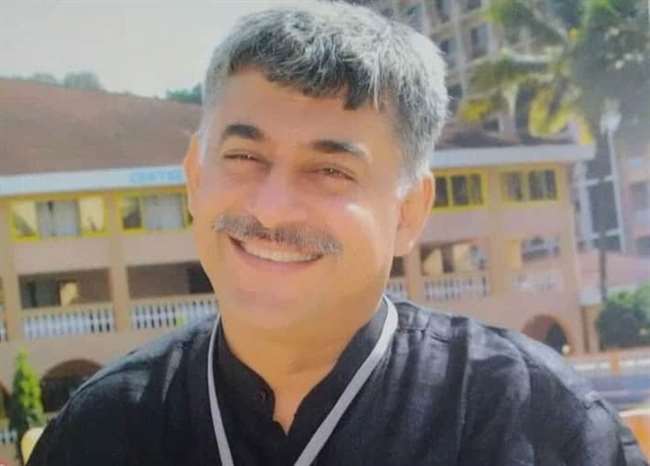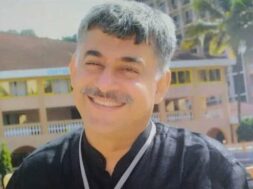
Vaccinating Children “Unscientific”: Epidemiologist
Manas Dasgupta
NEW DELHI, Dec 26: The prime minister Narendra Modi’s announcement on Saturday night to launch vaccination for the children in the 15-18 years age group has quickly met with objections from a government panel expert who described the move as “unscientific.”
It was even as several nations have quickly rolled out booster doses to protect their populations, and many of them, including India, have re-imposed travel restrictions to contain the variant. Though still under control, India too was reporting higher number of Coronavirus infections than in the last couple of months with Omicron variant having spread to about 20 states and union territories. Madhya Pradesh and Himachal Pradesh too reported the first cases of Omicron variant on Sunday.
Modi while addressing the nation on Saturday night announced that vaccination for the children above 15 years would be rolled out from January 3 while booster dozes for adults and frontline workers, which Modi termed as “precautionary dose,” would be launched from January 10.
A senior epidemiologist at the All India Institute of Medical Sciences, who is also the principal investigator of Covaxin trials for children and adults, said the government’s decision to vaccinate children above 15 was “unscientific” and would not serve any purpose.
Explaining, Dr Sanjay K Rai, who is also the president of the Indian Public Health Association, said before implementing the decision, data from countries that have already started vaccinating children should had been analysed which would only demonstrate that vaccinating children did not yield any extra benefits.
While making the announcements over television channels, Modi had claimed that vaccinating children in the 15 to 18 age group, as vaccination of people above 18 was already on for more than six months, would “reduce the worries of children going to schools and colleges and their parents, and boost the fight against the pandemic, he said, adding that the move is also likely to aid in normalisation of teaching in schools.”
While claiming that he was a “great admirer” of Modi, he differed with the government’s decision. “I am a great fan of PM Modi for his selfless service to nation and taking right decisions at right time. But I am completely disappointed with his unscientific decision on children vaccination,” Dr. Rai said in a tweet tagging the Prime Minister’s Office.
Elaborating his viewpoint, Dr. Rai said there should be a clear-cut objective of any intervention. The objective was to either prevent coronavirus infection or severity or death. But vaccinating children did not achieve any of the targets. “According to whatever knowledge we have about vaccines, they are unable to make a significant dent in the infection. In some countries, people are getting infected even after taking booster shots.
“Also, 50,000 breakthrough infections are being reported per day in the UK. So this proves that vaccination is not preventing coronavirus infection but vaccines are effective in preventing severity and death,” Dr. Rai said. He said mortality due to COVID-19 in susceptible populations is around 1.5 %, which means 15,000 deaths per million population.
“Through vaccination, we can prevent 80-90 per cent of these deaths, which means that 13,000 to 14,000 deaths per million (population) can be prevented,” he added. Serious adverse events following immunisation are between 10 to 15 per million population, Rai said. “So, if you do the risk and benefit analysis in adults, it is a huge benefit,” he said.
In the case of children, he said, the severity of infection is very low and according to data available in the public domain, only two deaths per million population have been reported. “In this section (children), 15,000 (people) are not dying and keeping in mind the adverse effects also, if you do the risk and benefit analysis, then the risk is more than the benefits based on the available data,” Dr. Rai explained.
“Both the objectives are not being fulfilled by initiating vaccination among children,” he said. Few countries, including the U.S., started vaccinating children four-five months ago. The data of these countries should be analysed before initiating COVID-19 vaccination for children, he said.
As the Covid cases have started rising, several states are bringing back curbs as a precautionary measure. Till Sunday, 422 Omicron cases have been reported across 17 states and Union Territories, of which 130 people have recovered. Maharashtra has the highest number of new variant cases, at 108, followed by Delhi at 76, Gujarat 43, Telangana 41, Kerala 38 and Tamil Nadu 34.
Madhya Pradesh and Himachal Pradesh on Sunday reported their first cases of Omicron variant of the coronavirus. In Madhya Pradesh eight people who had returned from abroad tested positive. In Himachal Pradesh one case of a woman who returned from Canada was confirmed from nine samples sent for genome sequencing. Of the eight cases in Madhya Pradesh, three had returned from the United States, two each from the United Kingdom and Tanzania, and one from Ghana. Six have since tested negative and been discharged from hospitals. The remaining two are both asymptomatic and receiving treatment. Apart from the eight Omicron cases, 18 more tested positive for other strains of COVID-19.
As far as the booster dose is concerned, the government sources said the plan would be to make the fully vaccinated people take a different vaccine instead of merely taking a third shot of the same vaccine they were injected in the fist two doses.
The union health ministry was expected to announce blueprint for rolling out the “precautionary doses” soon and the official sources pointed out that the prime minister terming he booster dose with the new nomenclature keep the window open of administering a different vaccine from the basket of vaccines available in the country.
As on Saturday, 12.04 crore over the age of 60 have received their first dose of vaccine; and 9.21 crore are fully vaccinated. The official data also shows that 1.03 crore healthcare workers have received their first dose, and 96 lakh are fully vaccinated; 1.83 crore frontline workers have received their first dose, and 1.68 crore are fully vaccinated. Which effectively means that more than 11 crore beneficiaries will be eligible for the “precautionary dose.”
“There is some clarity that if an additional dose is given to a beneficiary, it cannot be, at least in case of inactive whole virus or adenovirus vector Covid-19 vaccine, the same vaccine. So the preliminary consensus is that a beneficiary cannot take three doses of Covishield or Covaxin,” sources said. Sources said it is very likely that the precautionary dose will be a vaccine of a different platform. Multiple options are likely to available in the coming months including “Corbevax” being developed by the Hyderabad-based Biological E which was a protein sub-unit Covid-19 vaccine.
This differs from the inactivated whole-cell vaccines, by containing only the antigenic parts of the virus, to trigger a protective immune response. Bio E’s vaccine candidate includes an antigen developed by Texas Children’s Hospital Centre for Vaccine Development and is licensed from BCM Ventures, Baylor College of Medicine’s integrated commercialization team.
The Centre has already made an advance payment of Rs 1,500 crore to reserve 30 crore doses of Corbevax. Sources said Corbevax was expected to get Emergency Use Authorisation in the next two weeks.













